part 1
part 2
8. Recovery/restoration
Martin Rooney, pioneer of physical training for MMA and trainer to many superfreaks, said to "Schedule recovery first. Recovery is priority number one. Always build your schedule around it, not training." That alone should strike a nerve as to how important it is to get healthy and always feel on top of your game. If you are feeling banged up, tight, sore and stiff, you will not be prepared train at your best. We need to take the time to get our bodies prepared for the stresses that we put it through. Several things that must be considered for recovery are your nutrition, sleep, mental relaxation, contrast baths, massage, self myofascial release, and more. Mike Burgener, olympic lifting coach extraordinaire has been known to say he does not believe in overtraining, but under recovering. There will be a big difference between varying levels of athletes and their recovery methods, but make no mistake, if you are not scheduling rest and recovery into your lifestyle, your engine is bound to break down sooner or later. So do yourself a favor and make a little time for prevention and feeling healthy, or you will be forced to spend a lot of time and money on rehabilitation and injuries. The choice is yours.
9. Consistency/ sustainability
It is well known that olympic style lifting requires and develops lots of power for athletes. However, if one performs the movements with bad technique, there is a risk of injury to say the least. If you get injured, you can't train, if you can't train, you can't be a dominant athlete. That being said, the athlete needs to consider what they are going to be able to commit to on a regular basis. Just because the olympic lifts are ridiculously awesome, does not mean they are right for all athletes. It is not wise to force an athlete to train a particular way, it is better to adjust the training to the athletes needs and abilities. This goes for any style of training, I'm not picking on snatching or cleaning here. If the only place where an athlete can train a particular way is over an hour from home, and can only be done once a month, it might not be best to prioritize this type of training. The BJJ practitioner might need to be rolling with a partner, but making it to the mats only once every third Wednesday of the month will not help them dominate their chosen sport.
What you do must be practiced regularly and consistently. Dan John, author and world renown coach, has said, "If it's important, do it everyday." Eric Cressey, author and owner of Cressey Performance near Boston said, "that the best strength and conditioning programs are the ones that are sustainable. I'll take a crappy program executed with consistency over a great program that's only done sporadically." Of course, a great program executed with consistency is the ideal option.
10. Mastery
Every once in a while a young kid from outer space picks up a golf club, swings it, and magically a little ball lands in a cup somewhere off in the distance. This occurs in every sport, some kid is just head and shoulders faster, stronger, and better than the rest without putting forth any real effort. They have these innate abilities and natural talents that allow them to progress through the ranks faster and easier than everyone else. These are the anomalies, they are not included in this discussion. For those of us non mutants born here, on Earth, we need to work hard, really hard, for a long time to get to be better than average at our chosen sport. Now if you want to be dominant at your chosen sport, this needs to be taken to a whole new level. The basics of most skills and sports can be taught and learned in a matter of minutes. However, to master these very skills can take a lifetime. Most people will see a ton of progress right from the jump, but then their improvement may slowly start to decelerate. Don't think because you have been throwing a football for 2 months that you're ready to destroy all opponents in your path. Just think, Brett Favre has been a PRO for 20 years and surely he hasn't mastered his craft yet, but the key is to always be trying to get better. Never stop learning. Mistakes are probably your best learning lessons, so make a lot of them in your experiences and grow from them. Surely Brett has made his share. One becomes better at their craft by mastering the basics and fundamentals. Once these foundational skills have been acquired and mastered, they must be repeated constantly. The level of training must also match the level of athlete. For example, you don't have a white belt practice the drills of a black belt. Likewise, you don't teach calculus to a second grader. One of the worst things an athlete can do is train in a way that is too demanding of their skill level. Just because the gold medal olympic athletes are using program X, does not mean that it is the right program for you. Beginners should focus only on the basics and make practical progressions from there. Every step is based on the previous knowledge and skills acquired. After years and years of progressive training, you too can be a master of your sport.
Every day you can get just a little better than yesterday by eating better, sleeping better, training better, etc. Utilizing the principles discussed above will help keep you on the path to athletic domination. What can you do right now to get better? Whether it's go stretch, eat, sleep, meditate or train, something can be done to make you better.
If you're in or near the UK, you need to check out the Strength & Conditoning for Athletic Domination Seminar I am co-hosting with Sean Keefe and Zoran Dubaic at Strength & Performance in Manchester on Saturday, May 14th, 2011. Its going to be an amazing seminar with tons of information covered from bodyweight and kettlebell training, strongman and olympic lifting, sandbags and anything else that can enhance your skills and make you a more dominant athlete!
Also, please add any comments and ideas which you feel are essential for an athlete to achieve domination in their sport or life.
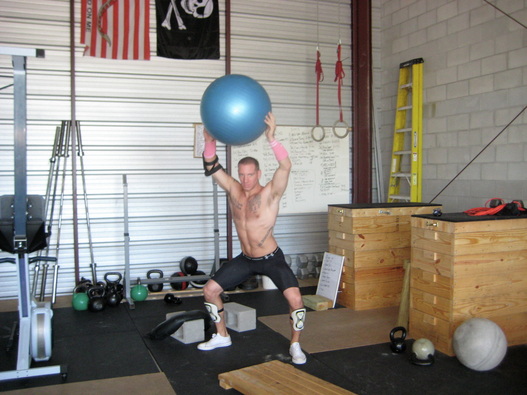

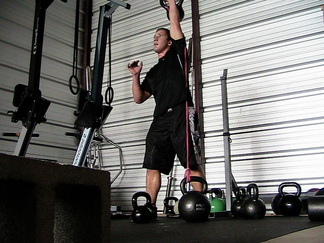

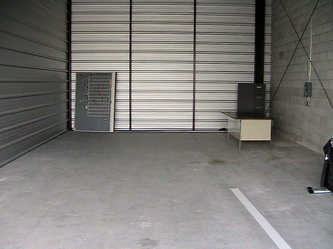
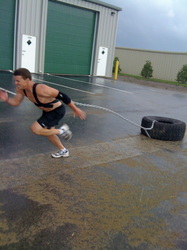
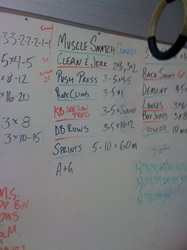

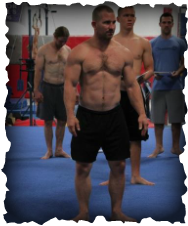
 RSS Feed
RSS Feed